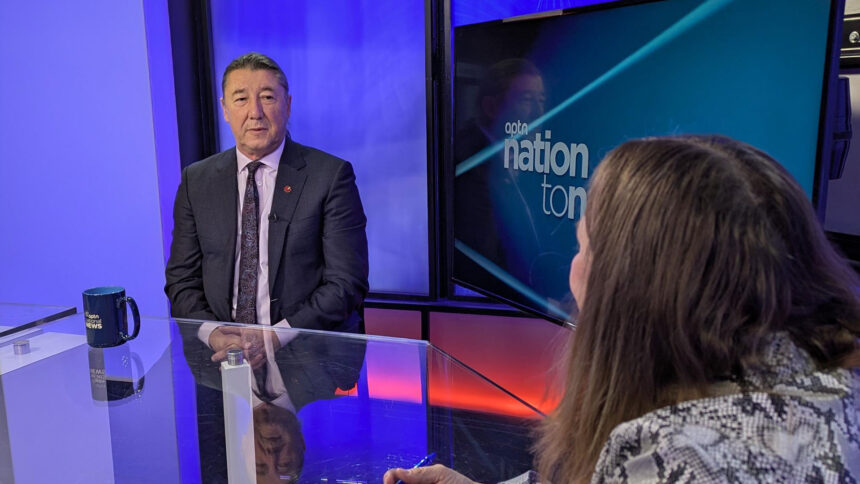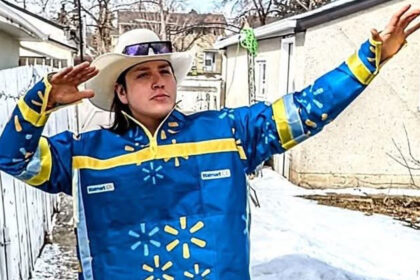After hearing from more than 50 witnesses—many of them emotional, some even angry—the Senate Standing Committee on Indigenous Peoples is preparing to go further than the government ever intended in restoring legal recognition to “non-status Indians.” Bill S-2 was introduced to restore status to a few thousand individuals—but senators are now considering sweeping amendments that would end the federal government’s discretion to decide who is legally recognized as a First Nations person. At the heart of those changes is a plan to eliminate the controversial second-generation cutoff and dismantle the so-called blood quantum rules that have governed Indigenous identity for nearly 150 years. Sen. Paul Prosper—a Mi’kmaq from Paqꞌtnkek First Nation, a lawyer and former regional chief for the Assembly of First Nations—is leading the charge. “What we’re hearing strongly from testimony is, let’s finally deal with it. Let’s deal with all the discriminatory practices that exist within the Indian Act and deal with it once and for all,” Prosper told Nation to Nation. Prosper’s proposed amendments would end the second-generation cutoff and replace it with what’s known in bureaucratic shorthand as the “one parent” rule. That means if a person has status, their child would be recognized—and status could continue through grandchildren, great-grandchildren, and beyond, regardless of intermarriage. Currently, blood quantum rules strip status after two successive generations marry non-status individuals. It also cuts individuals off from access to treaty rights. If those broad amendments pass in the Senate, all eyes will turn to the House of Commons—where MPs could either uphold the changes or reverse them entirely. “They can, you know, it’s their prerogative, they have that ability to do so (reverse changes),” said Prosper. “I’m hoping they’re receptive to the testimony within the chamber. “The Senate is in a unique position,” he added. “There’s a lot of corporate history and knowledge here. This isn’t our first rodeo with respect to dealing with this core and critical issue. It has existed for decades. And there’s set wisdom that exists—and it’s predicated on the testimony we heard. So I’m hoping that there’s some receptivity to that in the other place.” Testimony Jeannette Corbiere Lavell, Anishinabek Nation E-niigaanwidood E’Dbendaagzijig (Citizenship Commissioner) Aand daughter, Dawn Lavell Harvard, who is a former president of NWAC, want Senate to end the second generation cut-off in this bill. Among those who testified at the Senate was Jeannette Corbiere Lavell, an educator and lifelong advocate for Indigenous women’s rights. Corbiere Lavell currently works as the Anishinabek Nation E-niigaanwidood E’Dbendaagzijig (Citizenship Commissioner) for the Wikwemikong First Nation on Manitoulin Island in northern Ontario. “ My message to them (the senate), and I hope they heard it loud and clear, is that it’s time now, in this day and age, to take out all forms of discrimination and sexism,” she said. “Let’s do it right now. Just look at that Indian Act and make it viable. Make it fair and make it equal.” Corbiere Lavell says First Nations are ready to handle citizenship issues surrounding those who will be granted legal status. Status is not always the same as membership. Some First Nations have their own citizenship laws, meaning those who are granted status and receive legal recognition from the government may, depending on their First Nations membership laws, have to apply and pass certain qualifications to become citizens. “ We can decide who our people are and our community. Some of them have already done so; they’re developing and creating their own citizenship laws,” she said. Dawn Lavell Harvard, also a long time activist, former president of the Native Women’s Association of Canada and daughter of Corbiere Lavell, also testified in favour of ending the second-generation cut-off. While Indigenous Services Canada (ISC) Minister Many Gull-Masty has promised to work on the second generation cutoff, Lavell Harvard said people have waited long enough, she’s been fighting for this” since the day she was born.” “ This is about children,” she said. “They should be going to nursery school so that we can work on revitalizing our language and culture and that resurgence. And there are so many of our children who are being excluded right now. They don’t have years to wait. It’s going to be too late for some of those and it’s not right. We have to do something right now.” ISC Minister Gull-Masty responds Bill S-2 was never meant to be this ambitious. Officially titled An Act to amend the Indian Act (new registration entitlements), it was designed to address a narrow legal issue in a lawsuit, Nicholas v. Canada, launched in 2021. Left untouched, S-2 would restore status to a small group—estimated between 3,500 and 5,000 people—whose status was lost under repealed provisions of the Indian Act. Individuals who lost status because they graduated from university, left the country or who voluntarily gave up status. Read more: ‘It’s really, really serious’: ISC minister grilled by Senate committee on 2nd-generation cut-off in Indian Act Senate tables legislation aimed at fixing ‘Indian status’ inequities Gull-Masty was one of the first witnesses to appear before the Senate Standing Committee on Indigenous Peoples and from the outset, she faced tough questions about why Bill S-2 did not address the second-generation cutoff. At the time, Gull-Masty said the bill needed to pass quickly to meet legal deadlines and respond to a case before the courts. Still, she emphasized that she was committed to ending the second-generation cutoff and believed a path forward could be found by the end of the year. Since then, the minister has been given a heads-up by the committee about the broad amendments they plan to propose. “ I have been observing the Senate. I see the work that they’re trying to do. I see and respect that. Yes, it’s a really important conversation. There are considerations of amendments,” Gull-Masty told Nation to Nation. “ I’m gonna wait and see what the Senate proposes, pushes forward. I’m hoping that they’re gonna reflect those two very important things, these 3,500 people that are looking for a solution, and the deadline that the court has imposed on this process.” Bill S-2 also makes minor changes to outdated language, restores band membership to women who are legally recognized as First Nations but who are not registered with their First Nation. Continue Reading
Senator proposes major amendments to end second-generation cutoff

Leave a Comment










